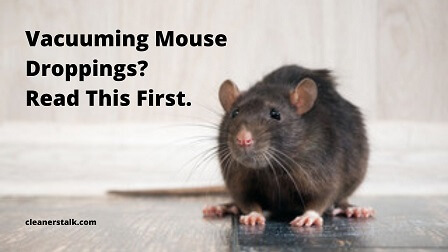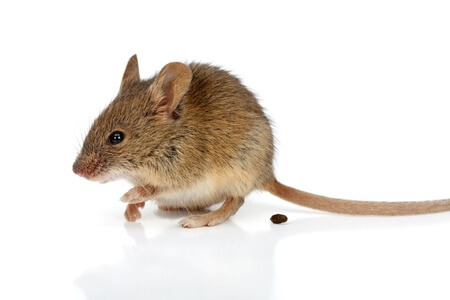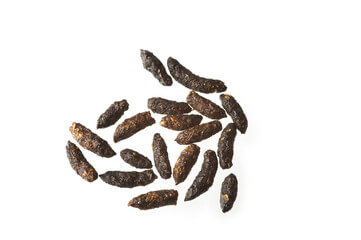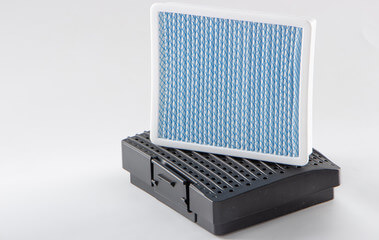
Is it Safe to Vacuum Rat and Mouse Droppings?
Cleaners Talk is reader-supported. This post contains affiliate links, we may earn a commission at no additional costs to you. As an Amazon Associate we earn from qualifying purchases.
Suppose you’re in the middle of your weekly house cleaning or opening up your mountain cabin for the spring and need to vacuum. You come across some small rice-shaped pellets (more commonly known as mouse droppings) along a baseboard or in a cabinet. Yikes! It looks like you’ve got a resident mouse or two.
Is it safe to vacuum rat and mouse droppings? It is not safe to vacuum or sweep up mouse droppings without HEPA filtration. Rats and mice can carry diseases, bacteria, and viruses that are harmful, even fatal to humans. When disturbed, these pathogens release airborne particles that humans can breathe in.
Your first thought is probably to grab the nearest vacuum cleaner and get to work sucking up all the droppings. But hold on a minute; that may not be the best way to handle the problem. In this article, we’ll explore what you should do to clean up rodent droppings safely.
Is it Safe to Vacuum Mouse Droppings?

If you’ve seen rat or mouse droppings, then you know it’s time to take some action. Where there are mouse poop, there is also urine and saliva, both of which can also transmit diseases.
Most of us want to grab a broom or vacuum cleaner and get to work, but that’s not a good—or safe—idea. Using a broom or vacuum cleaner with a standard filter will disturb the feces, releasing contaminated particles into the air. Once inhaled, these particles, if a virus is present, can make you very sick.
Rodent Droppings Are a Health Hazard

No one wants rodents (mice and rats) in their home or office. But these little critters often make their way into our buildings through gaps in windows or doors, tub drains, or through small holes near gas lines.
Mice can live inside walls, insulation, in and under cabinets, and in crawl spaces. Once one or two find a warm, cozy place inside, they invite all their friends. And now you’ve got a problem.
According to the Centers for Disease Control, rodents can directly transmit over ten diseases to humans, including the Hantavirus and Lymphocytic Chorio-meningitis (LCM), which are spread primarily by mice. Indirect transmission from rodents is linked with at least fifteen diseases.
Since 1993 when record-keeping began, there have been 728 cases of Hantavirus in the U.S. (as of 2017). So, while it’s relatively rare, it is a threat when rodents are present. And with a 38% mortality rate, the hantavirus is not something to take lightly.
Can I Use a Regular Vacuum Cleaner with a Special Filter?
Regular vacuum cleaners with a standard filter will stir up dust and aerosolize the pathogens in the mouse poop, releasing the particles into the air. That’s why it’s not recommended to use a regular vacuum cleaner.
However, you can find special filters called HEPA filters that fit standard vacuum cleaners. Problem solved, right? Not so fast. Let’s see what HEPA means and go from there.
What Are HEPA filters?

HEPA stands for High-Efficiency Particulate Air. It’s not a special material but a standard of filtration. To receive the HEPA designation, the filter must capture at least 99.97% of particles that are very small—0.3 microns.
A True HEPA filter will have a serial number printed on it. It may even have test results printed on the filter itself, showing its capability to trap microscopic particles.
A HEPA-type filter does not meet the same strict standard as the True HEPA. Although similar in appearance, a HEPA-type filter usually traps only 85-90% of particles, even less for the smallest ones. This type will not have a serial number printed on the filter.
Do HEPA Filters Help When Vacuuming Mouse Droppings?
At first glance, a HEPA filter seems like the perfect solution. Just put one in your regular vacuum cleaner, and you’re good to go. However, that’s not actually the case, and here’s why:
According to a Tornadovac article, a vacuum cleaner with sufficient airflow and decent rollers does an excellent job of capturing allergens and other particulates. Add a HEPA filter and results improve. However, most still allow some air to escape back into the room.
When it comes to rodent cleanup, the problem lies in these particles' ability to escape the vacuum cleaner through tiny fissures and cracks in the housing and hoses and get into the air we breathe. That exposes us to hantavirus and other diseases.
So you see, merely adding a HEPA filter to a standard vacuum cleaner is not sufficient protection against contaminated particles when cleaning up rodent droppings.
How to Safely Vacuum Mouse Droppings
By now, you’re probably wondering if it’s even possible to safely use a vacuum cleaner at all to get rid of mouse droppings in your home or office. With standard household equipment, even with a HEPA filter, your best bet is not vacuuming and avoiding aerosolizing the particles.
However, there are vacuum cleaners out there that will allow you to suck up the droppings, provided you follow other safety precautions like wearing gloves, disinfecting the soiled area, and washing hands and clothing when finished.
True HEPA Vacuum Cleaner
A True HEPA vacuum cleaner (also known as a Sealed HEPA) pulls air in and only allows air to exit through the HEPA filter. The machine is carefully designed and built so that no air can escape except through the filter.
If you prefer not to call in a professional company to clean up your mouse mess, consider using a True HEPA vacuum cleaner. Other than the non-vacuum method mentioned earlier, a True HEPA vacuum is the safest way to eliminate mouse droppings.
- Every Purchase Saves Pets. BISSELL proudly supports BISSELL Pet Foundation and its mission to help save homeless pets.
- Powerful Cleaning Performance. Effectively remove pet hair and other debris across multiple surfaces with powerful suction and the Tangle-Free Brush Roll.
- HEPA Sealed System. Traps everything
True HEPA vacuums come in two types: bagged and bagless. It’s not the bag or lack of bag that makes the machine HEPA, though. You can find True HEPA machines that cost about the same as a non-HEPA vacuum.
PRO TIP: Whenever you are dealing with mouse droppings, be sure to confirm that the vacuum cleaner you buy or use is a True HEPA, rated to filter 99.97% of particles as small as 0.3 microns. We've reviewed 5 of the best upright vacuum cleaners equipped with HEPA filters to help you on your quest against nasty mouse poop!
Other Ways to Safely Clean Up Mouse Droppings
As you might have guessed from the previous sections, the best way to eliminate mouse droppings is to avoid using the vacuum altogether. Instead, once you’ve made sure all the mice are gone, you should follow these steps to clean up the places they’ve been:
- Air out the infected space for at least 30 minutes by opening all windows and doors to provide cross-ventilation. Stay out of the area during this ventilation time.
- Wear protective equipment: thick, non-absorbent rubber gloves and, if possible, a full-face respirator (link to Amazon). Remember, you can never be too careful.
- Spray the droppings and urine with a disinfectant or bleach solution and let it sit for at least 5 minutes. A mixture of 1 part bleach to 10 parts water can also be used.
- Once the area is damp, use a paper towel or old rag to pick up the feces and wipe urine stains carefully to prevent hazardous particles from becoming airborne.
- Dispose of all droppings and the cloths used in the cleanup in a heavy-duty plastic garbage bag.
- Seal the garbage bag tightly and place it in the garbage can.
- Using more disinfectant or bleach solution, thoroughly clean and disinfect the area, including any surface or item that might have been touched by mice or their droppings.
- Throw away the gloves used during cleanup.
- Wash your hands and clothing thoroughly with soap and hot water.
Final Thoughts
And there you go, a response to the question: Is It Safe to Vacuum Rat and Mouse Droppings?
While most of us (understandably) want to get rid of mouse droppings as soon as we find them, it’s not safe to whip out our regular vacuum cleaner and start “Hoovering” the area. For safety’s sake, it’s best to slow down and plan the cleanup before doing anything that may be harmful to your health.
If you’ve got a True HEPA vacuum cleaner and protective gear, it’s okay to begin dealing with your mouse poop problem carefully. Otherwise, follow the steps we’ve shared with you or call a rodent removal and cleanup professional. They are well-trained to not only clean up the mess, but to end any infestation too.
Related articles:

Ryan O'Connor
I write about house cleaning and vacuum cleaners. For me, nothing is more important than a clean environment to ensure both a healthy and happy life. Learn more.

